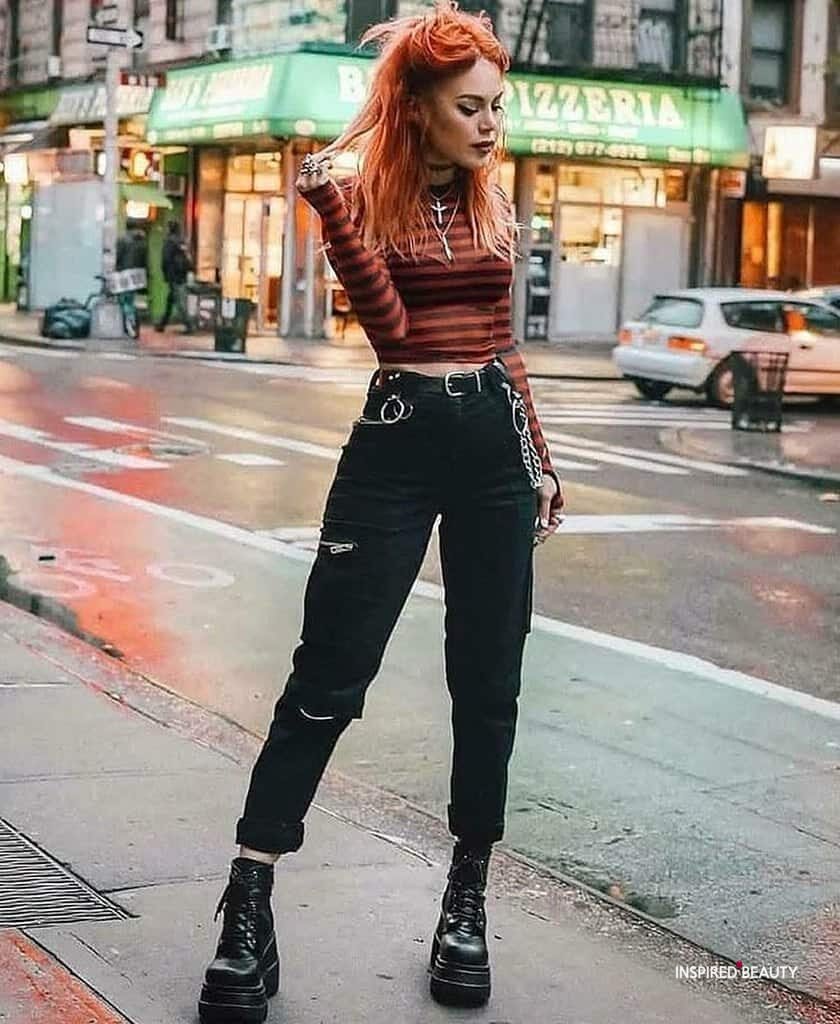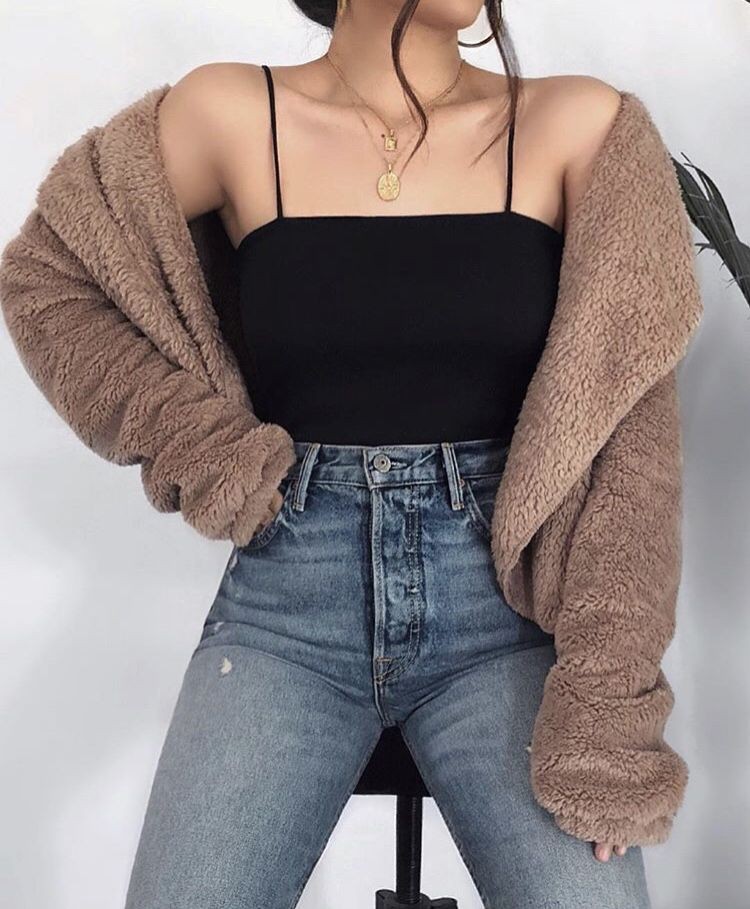
Introduction
When it comes to fashion, one of the most important aspects is the aesthetics of an outfit. The way we dress not only reflects our personal style but also influences how others perceive us. In this article, we will explore the concept of outfit aesthetics and how it can make a significant impact on our daily lives.

Defining Outfit Aesthetics
Outfit aesthetics refers to the visual appeal of an ensemble, taking into consideration factors such as color, pattern, texture, and overall composition. It involves creating harmonious and visually pleasing combinations of clothing and accessories. The goal is to express oneself through fashion and create a positive impression.

The Power of Colors
Colors play a vital role in outfit aesthetics. They have the ability to evoke specific emotions and set the tone for an outfit. Bright and bold colors can convey confidence and energy, while pastel shades create a softer and more delicate look. It is essential to understand color theory and choose hues that complement each other.

Patterns and Prints
Patterns and prints add visual interest to an outfit. From classic stripes to trendy florals, there are endless options to choose from. However, it is crucial to strike a balance and avoid overwhelming the overall look. Mixing patterns can be done tastefully by selecting complementary designs or opting for one statement piece.

Textures and Fabrics
The choice of textures and fabrics can greatly impact the aesthetics of an outfit. Textures such as lace, velvet, or leather add dimension and depth. Fabrics with different weights and finishes create varying visual effects. Experimenting with texture can elevate an outfit and make it more visually appealing.

Proportions and Silhouettes
The proportions and silhouettes of clothing items contribute to the overall aesthetic appeal. Understanding body proportions and selecting items that flatter one's figure can enhance the visual impact of an outfit. Balancing loose and fitted garments creates an interesting contrast and adds visual intrigue to the ensemble.

Accessories
Accessories are essential in completing an outfit and adding that extra touch of style. From statement necklaces to delicate bracelets, they can elevate a simple look to new heights. Choosing accessories that complement the outfit's color scheme and style is crucial in maintaining a cohesive and aesthetically pleasing ensemble.

Dressing for Occasions
Outfit aesthetics may vary depending on the occasion. Formal events call for more polished and sophisticated ensembles, while casual outings allow for a more relaxed and effortless style. Adapting the aesthetics of an outfit to suit the occasion demonstrates an understanding of appropriateness and enhances one's overall image.

Personal Style
Personal style is an essential aspect of outfit aesthetics. It reflects our individuality and sets us apart from others. Developing a personal style involves experimenting with various fashion trends and finding what resonates with our personality. Embracing authenticity in our outfit choices allows us to express ourselves confidently.

The Psychology of Outfit Aesthetics
Outfit aesthetics can have psychological effects on both the wearer and those around them. Dressing in aesthetically pleasing ensembles can boost self-confidence and improve overall mood. Additionally, others often form initial impressions based on our appearance, making outfit aesthetics an important factor in social interactions.

Outfit Aesthetics and Self-Expression
Outfit aesthetics provide a platform for self-expression. Through fashion, individuals can communicate their personality, interests, and values without uttering a word. The way we dress can convey messages and create connections with like-minded individuals. It is a powerful tool for showcasing who we are and what we stand for.

Creating Harmonious Outfits
Harmony is an important aspect of outfit aesthetics. It involves selecting clothing items and accessories that work together seamlessly. Considering factors such as color coordination, proportion, and overall visual balance ensures a cohesive and pleasing look. Creating harmonious outfits is about finding the right balance and avoiding clashing elements.

Breaking Fashion Rules
While understanding the fundamentals of outfit aesthetics is crucial, it is also important to remember that fashion rules are meant to be broken. Experimentation and pushing boundaries can lead to unique and interesting outfit combinations. Breaking free from conventions and embracing individuality can result in truly remarkable and innovative aesthetics.

Cultural Influences on Outfit Aesthetics
Outfit aesthetics are heavily influenced by culture and societal norms. Different cultures have distinct fashion aesthetics, which are often rooted in traditions and historical contexts. Understanding and appreciating the diverse aesthetics of various cultures can lead to a more inclusive and open-minded approach to fashion.

Timeless Aesthetics
Some outfit aesthetics stand the test of time and remain relevant regardless of trends. Timeless aesthetics focus on classic pieces, neutral colors, and minimalistic styles. Investing in timeless wardrobe staples allows for versatility and longevity, ensuring that outfits remain stylish and aesthetically pleasing for years to come.

Outfit Aesthetics in Different Seasons
Outfit aesthetics can change with the seasons. Different weather conditions and seasonal trends influence the choice of clothing and accessories. Adapting aesthetics to suit the season allows for both comfort and style. Layering, fabric choices, and color palettes play vital roles in creating season-appropriate and aesthetically pleasing outfits.

Outfit Aesthetics for Different Body Types
Outfit aesthetics should be tailored to suit different body types. Understanding one's body shape and choosing clothing that flatters and enhances natural features is key. Highlighting assets and downplaying areas of concern can create an aesthetically pleasing silhouette. Embracing individual body types leads to confidence and self-assurance in one's outfit choices.

Outfit Aesthetics and Confidence
Wearing aesthetically pleasing outfits can significantly boost confidence levels. When we feel good about our appearance, it positively affects our mindset and interactions with others. Outfit aesthetics can empower individuals to embrace their unique style and express themselves authentically, ultimately leading to increased self-confidence and self-esteem.

The Influence of Social Media
Social media platforms have transformed the way outfit aesthetics are perceived and shared. Fashion influencers and bloggers play a significant role in shaping trends and popularizing certain aesthetics. The accessibility of fashion inspiration through platforms like Instagram and Pinterest allows individuals to explore and experiment with different styles.

Outfit Aesthetics and Professional Image
Outfit aesthetics play a crucial role in professional settings. Dressing appropriately and in line with the company's culture can enhance one's professional image. Aesthetically pleasing outfits in professional settings demonstrate attention to detail, professionalism, and respect for the workplace. It is important to strike a balance between personal style and maintaining a professional appearance.

Outfit Aesthetics and Personal Branding
Outfit aesthetics contribute to personal branding. Consistently presenting oneself in aesthetically pleasing outfits that align with personal values and goals can create a strong and memorable brand image. Whether it's in a professional or personal context, outfit aesthetics are an integral part of how we present ourselves to the world.

Conclusion
Outfit aesthetics are a powerful tool for self-expression and creating positive impressions. By considering elements such as colors, patterns, textures, and accessories, individuals can create harmonious and visually pleasing ensembles. Outfit aesthetics influence our confidence, mood, and how others perceive us. Embracing personal style and experimenting with different aesthetics allows us to showcase our individuality and authenticity.